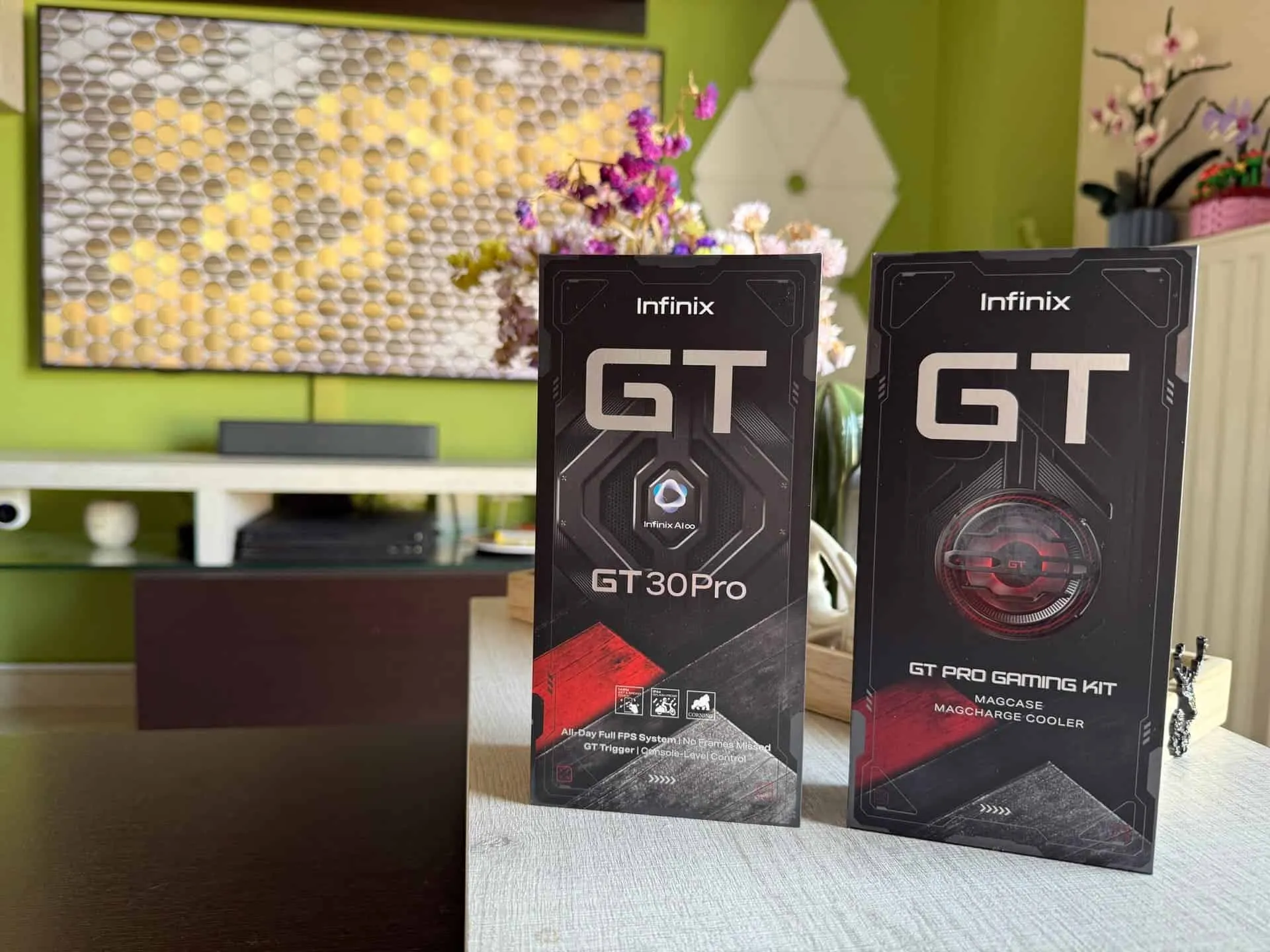
There’s no shortage of smartphones claiming to be made “for gamers.” Most toss in a high refresh rate screen, some RGB lighting, and a marketing phrase like “extreme performance,” and call it a day. Infinix, though—they’ve decided to go bigger. The GT 30 Pro isn’t just another gaming phone. At least, it doesn’t want to be. With bold claims like "All-Day Full FPS," shoulder triggers, a magnetic cooling fan, wireless charging while gaming, and even ray tracing (yes, on a phone)—this one’s clearly swinging for the fences. I spent a week with the Infinix GT 30 Pro, diving deep into everything from PUBG matches to day-to-day tasks, to see whether it's all hype or actual heat.
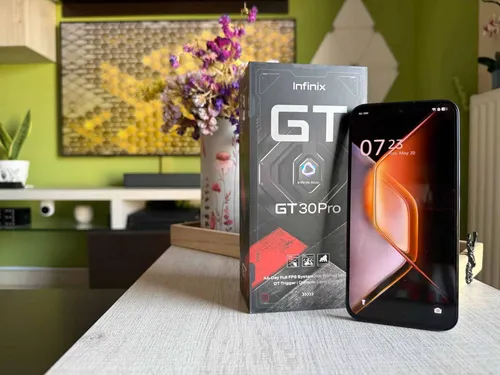
Short version? It's complicated. But that’s what makes it interesting.
Looks That Don’t Whisper
First impressions? Loud. The GT 30 Pro wants to be seen—particularly the Dark Flare edition with RGB lighting and sci-fi-circuit patterns that light up in real time. Subtle? Absolutely not. But appealing in its own way, especially if you’re 17 or still remember what a LAN party smelled like.
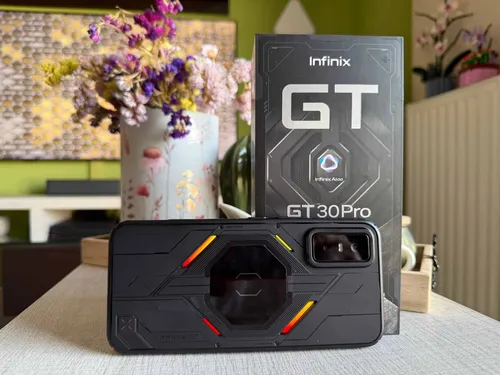
The build is solid. Lightweight at 189g, under 8mm thick, with a satisfying grip. The back panel’s textured and scratch-resistant, but the real eye-catcher is the Mechanical Light Waves—20+ lighting effects that respond to games, calls, even music. Flashy? Sure. But also kinda fun.
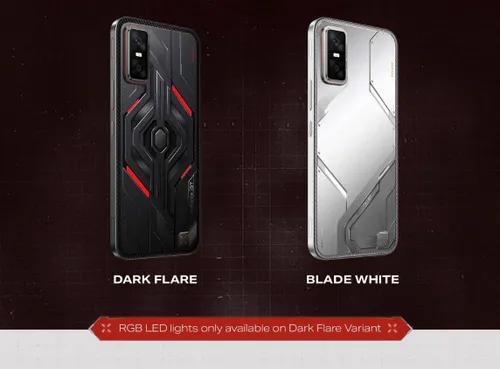
There are 2 colorways—Blade White, and Dark Flare. The Dark Flare is the head-turner. The others are subtler, but still unmistakably “gamer.” For something this dramatic, it feels surprisingly light in the hand at 189g, with a thickness under 8mm. It’s thin enough to slide into a pocket, but not too slippery or delicate.
That RGB back? It’s not just for show. It pulses to calls, messages, or gameplay. I know. Gimmicky. But it kind of grew on me. It made me want to game more. Isn’t that sort of the point?
Build Quality & Extras: It’s Not Just Flash
Despite the flashy exterior, the Infinix GT 30 Pro is built. The back panel is durable, scratch-resistant, and water-resistant up to IP64. That’s not waterproof, but enough for rain and dust. It also includes NFC, an IR blaster, and stereo speakers—nice-to-haves that many phones at this price skip.
Accessories matter too. The MagCase and MagCharge Cooler both feel premium and add real utility. They’re not just box candy—they’re part of the ecosystem.
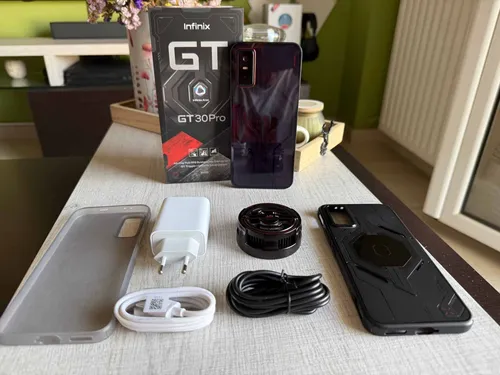
Display & Audio: Eye Candy, Ear Boom
This is where things get genuinely impressive. The 1.5K AMOLED panel at 144Hz is gorgeous. Colors pop, brightness peaks at 1600 nits, and visibility in sunlight is actually usable. I caught myself watching HDR trailers on YouTube just because it looked that good. Touch response is sharp, even with slightly oily fingers—a surprisingly common problem on other phones that this one avoids.
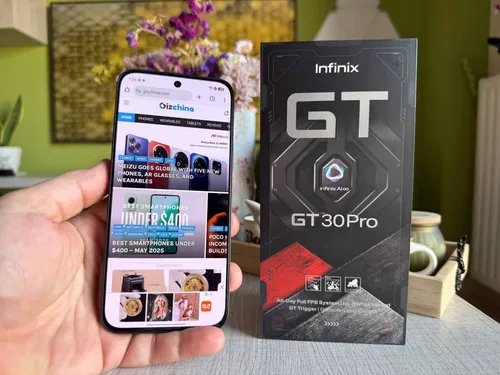
The audio complements the display nicely. The JBL dual stereo speakers aren’t the deepest I’ve heard, but they’re clean and loud. Gunshots have weight. Footsteps feel directional. Even casual Netflix streaming sounded spatial and lively.
Whether you’re gaming or just doom-scrolling, the experience feels premium.
Performance: Fast, But Not Unstoppable
Under the hood: MediaTek Dimensity 8350 Ultimate, paired with up to 24GB extended RAM and UFS 4.0 storage. In practice, the GT 30 Pro flies through multitasking. App launches are snappy, thanks to XOS 15’s optimizations. Games load fast. Scrolling is butter. Multitasking is seamless. I jumped between Instagram, BGMI, Discord, and Chrome—no hiccups. App launches are quick. The phone rarely gets bogged down. But there were a few caveats.
Some heavier games—Genshin Impact, CODM—occasionally dropped frames on max settings. Not game-breaking, but noticeable. To be fair, the included 3D Vapor Cloud Chamber Cooling kept heat manageable. Even during a full hour of PUBG, the phone stayed warm but not hot. That’s rare in this price tier.
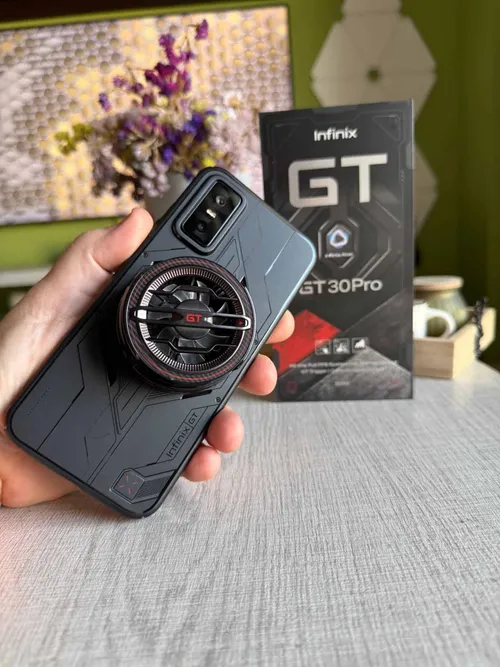
Interestingly, the phone supports ray tracing in select games. It’s real. It works. Kind of. The problem? Only a handful of titles (mostly in China) support it for now. It’s cool tech, but its usefulness feels… aspirational.

Gaming performance? Good. Mostly. Frame rates in CODM, BGMI, MLBB, and Standoff 2 were high and stable, even up to 120FPS for supported titles. Thermal throttling was minimal—thanks to the 3D Vapor Cloud Chamber Cooling, I suppose—but it does get warm during long play.
Minor stutters did appear in Genshin Impact, especially during longer sessions. Not bad, just not perfect. That said, I didn’t expect ray tracing to work at all—but on supported games (currently China-only), it actually added surprisingly real-looking lighting effects. Caveat: the list is short, and the future of mobile ray tracing is still very "maybe."
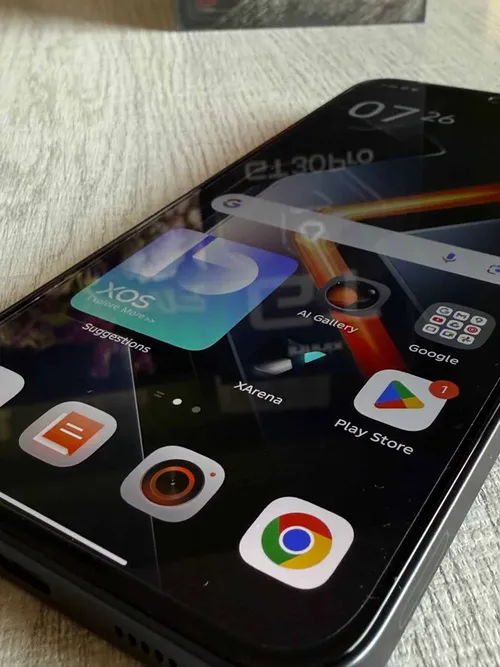
Triggers, Touch, and Tilt
Here's where things get cool. The GT Triggers—those are a win. Capacitive, ultra-light, and software-customizable. I mapped crouch and scope to them in PUBG and saw an immediate improvement in reaction speed. You can even launch your favorite game just by long-pressing the shoulder keys. No need to unlock, swipe, search, tap—just press and you’re in.
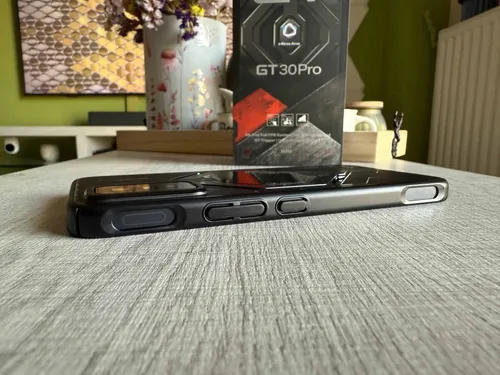
The 6-axis motion sensor adds intuitive control. Not perfect—sometimes it overshoots—but in racing games or sniping modes, tilting the phone instead of tapping felt more natural. That kind of detail tends to get overlooked, but it made a difference. Touch response is crisp with 2160Hz sampling and 240Hz reporting. You feel it, especially in high-speed moments. It reacts like a flagship.
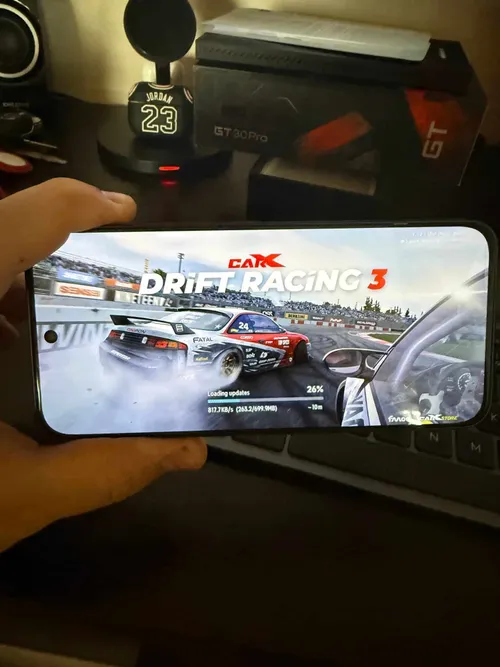
The Ecosystem Play: Worth It?
This is where the GT 30 Pro tries to go from “good phone” to “game-changing platform.” The MagCharge Cooler and MagCase are both included in the Master Edition box—and they’re legit.
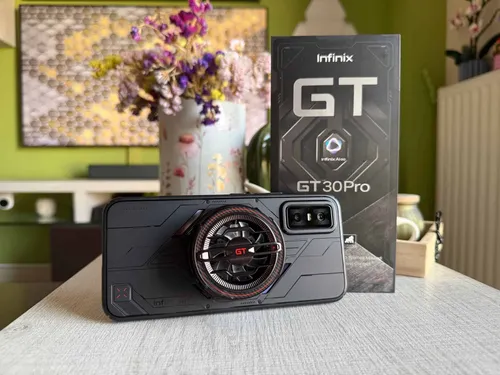
The cooler is light (78g), snaps on magnetically, and doubles as a stand. More importantly, it keeps the phone cool while charging wirelessly. That’s not something you see every day. There’s even a little animated “Draco Mode” that kicks in when you snap it on. Does it change your gameplay? Probably not. But it makes the experience feel richer. And that counts.
Battery & Charging: More Than Enough
Battery life is solid. The 5,500mAh cell easily lasted a day of moderate use, including an hour or two of gaming. In heavy sessions, I saw around 6 hours of screen-on time. That’s respectable.
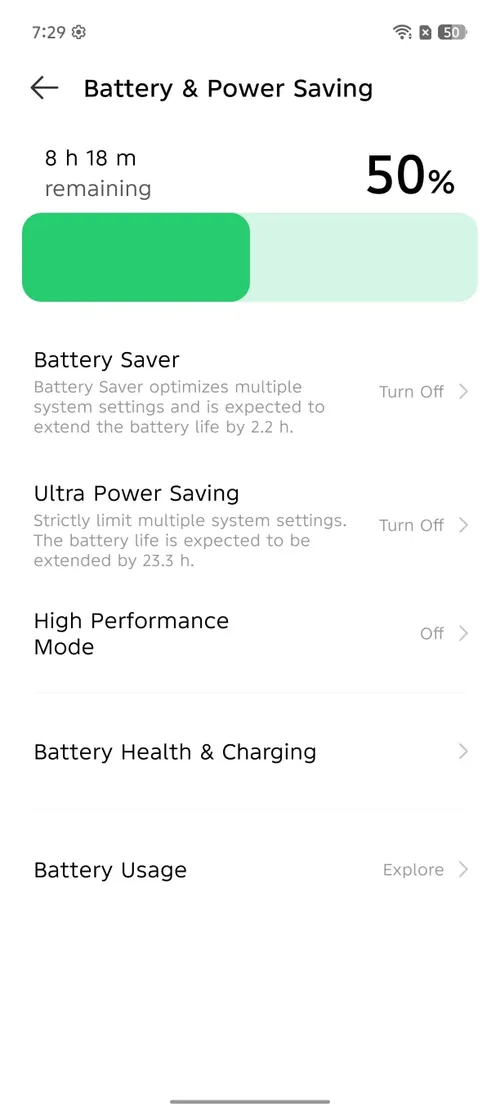
Charging is flexible. 45W wired, 30W wireless, and something unique: Bypass Charging 2.0. This sends power straight to the motherboard instead of the battery—keeping thermals low and the battery healthier long term. The first time I used it, I didn’t even realize how much cooler the phone stayed until I switched it off.

The MagCharge Cooler adds another layer. It clips on magnetically, powers via USB-C, and keeps the device chilled during wireless charging. Yes, wireless charging while cooling. That’s not a thing I expected to work. But it does.
Cameras: They Exist
Let’s be honest. You’re not buying an Infinix GT 30 Pro for the camera. A 108MP main shooter, an 8MP wide, and a 13MP front camera round out the camera spec sheet. Daylight shots are decent—color’s fine, HDR is serviceable. But in low light or motion? Noise creeps in. Detail drops. Not terrible, but not a selling point. Gamers won't care. Content creators? Might.
That said, the 108MP main sensor is decent. Good light? Solid detail. Colors lean warm but not unnatural. The 8MP ultrawide is average—soft edges, lower dynamic range. And the 13MP selfie cam gets the job done.
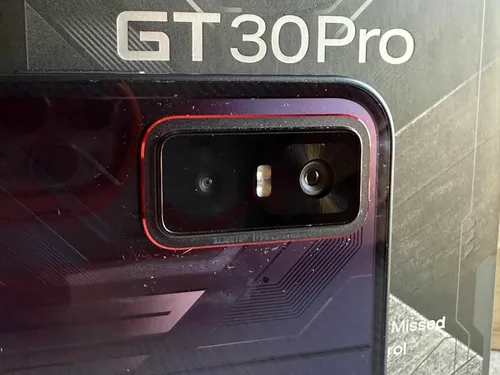
Night mode exists. It works. But I wouldn’t stake a vacation on it.
Software & AI: XOS 15 Is... Busy
The software layer—XOS 15—is loaded. Maybe too loaded. You’ve got the AI Magic Box, which adds shortcuts and voice-changing in games (kind of fun), plus Folax, the onboard AI assistant that can summarize documents, plan travel, or generate wallpapers from keywords. Occasionally helpful. Occasionally annoying.
Where it does shine is with XBOOST—a game overlay that optimizes performance, blocks calls, and tweaks touch sensitivity on the fly. Also, Game Visual Boost and Audio Boost help spot enemies in dark corners or isolate footsteps in shooters.
All of this is built for gamers. You feel that. It's thoughtful—even if the UI needs a cleanup. Still, I respect that they’re trying. It’s better to overbuild and let users decide than ship a lifeless UI.
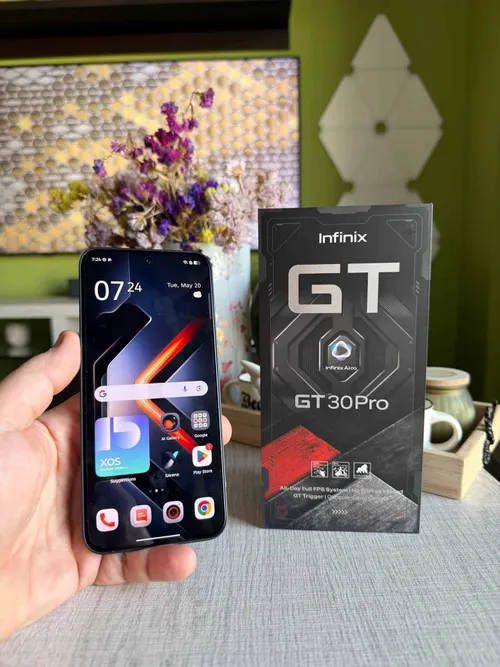
Final Verdict: Worth the Hype?
If you’re a competitive mobile gamer on a mid-range budget, yes, the Infinix GT 30 Pro delivers more than expected. High frame rate support, physical triggers, solid cooling, good sound, and a suite of thoughtful touches (like Bypass Charging and AI gaming tools) make it stand out.
But it’s not perfect. The software can feel bloated. Some features are ahead of their time—or ahead of actual game support. And while ray tracing looks impressive, it’s still a bit... theoretical.
That said, if you're in this price bracket and want a phone built unapologetically for gaming—this is probably the best one out right now. If you're a serious mobile gamer looking for value, this phone doesn’t just talk the talk. It can carry you—almost all the way.
You can find more info about the device here.
Popular News
Latest News
Loading

